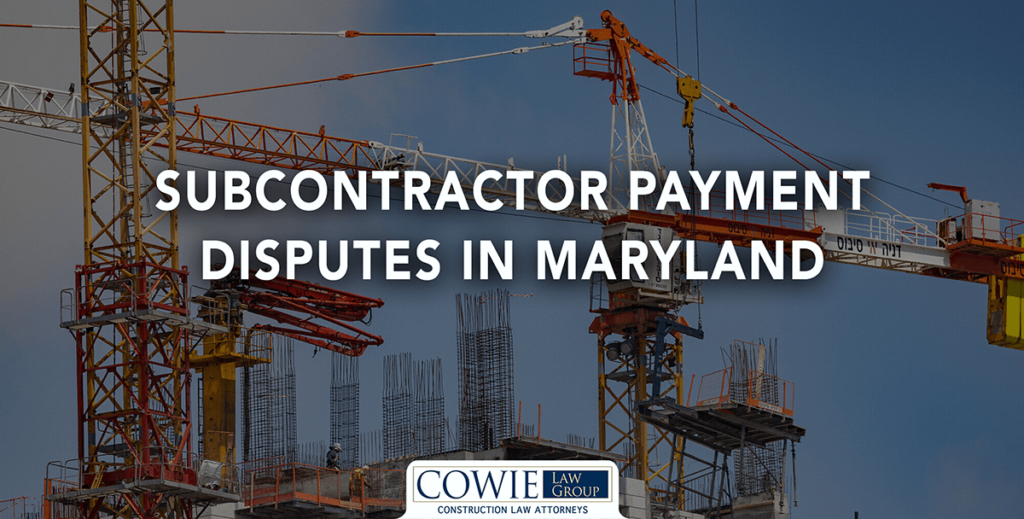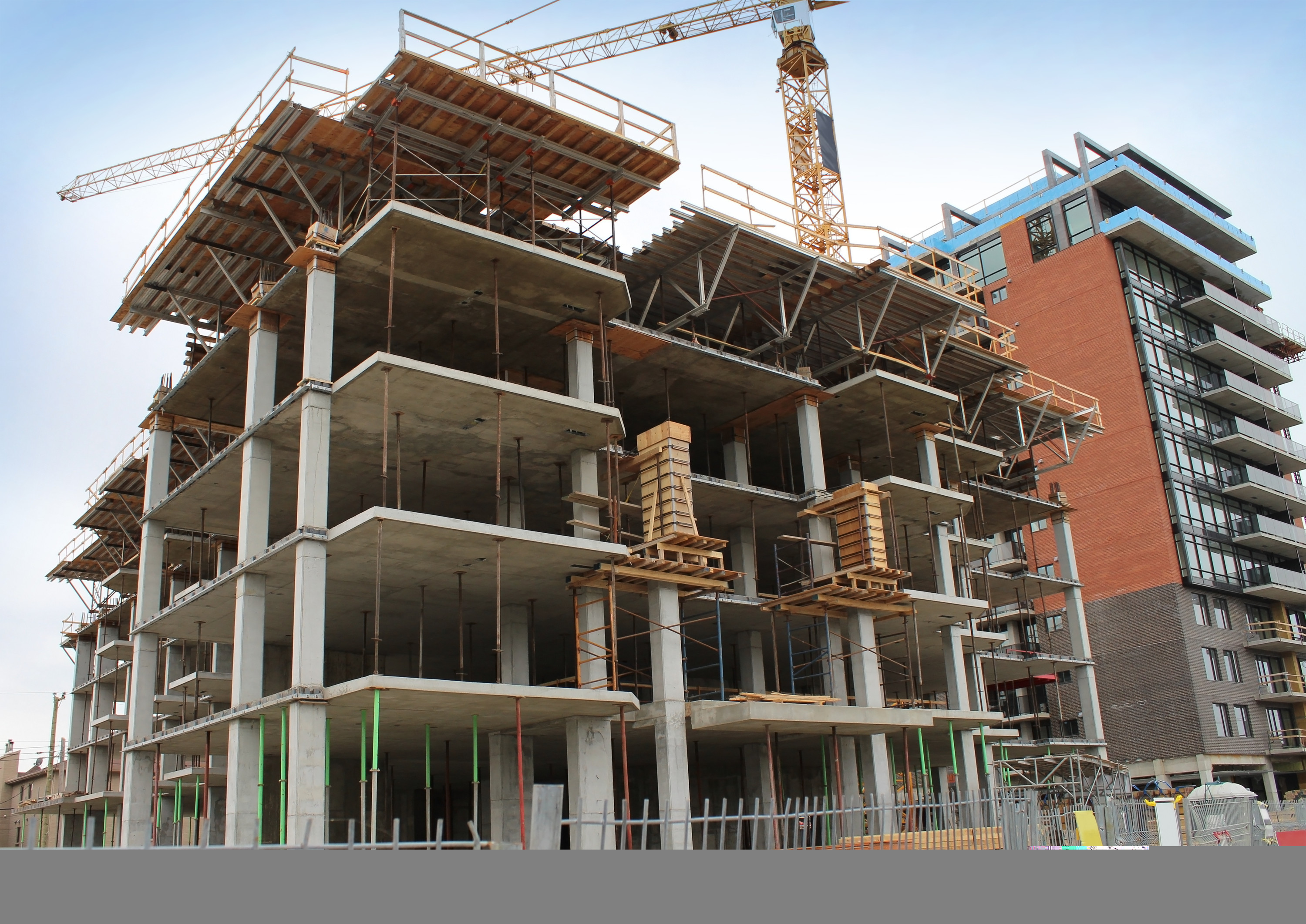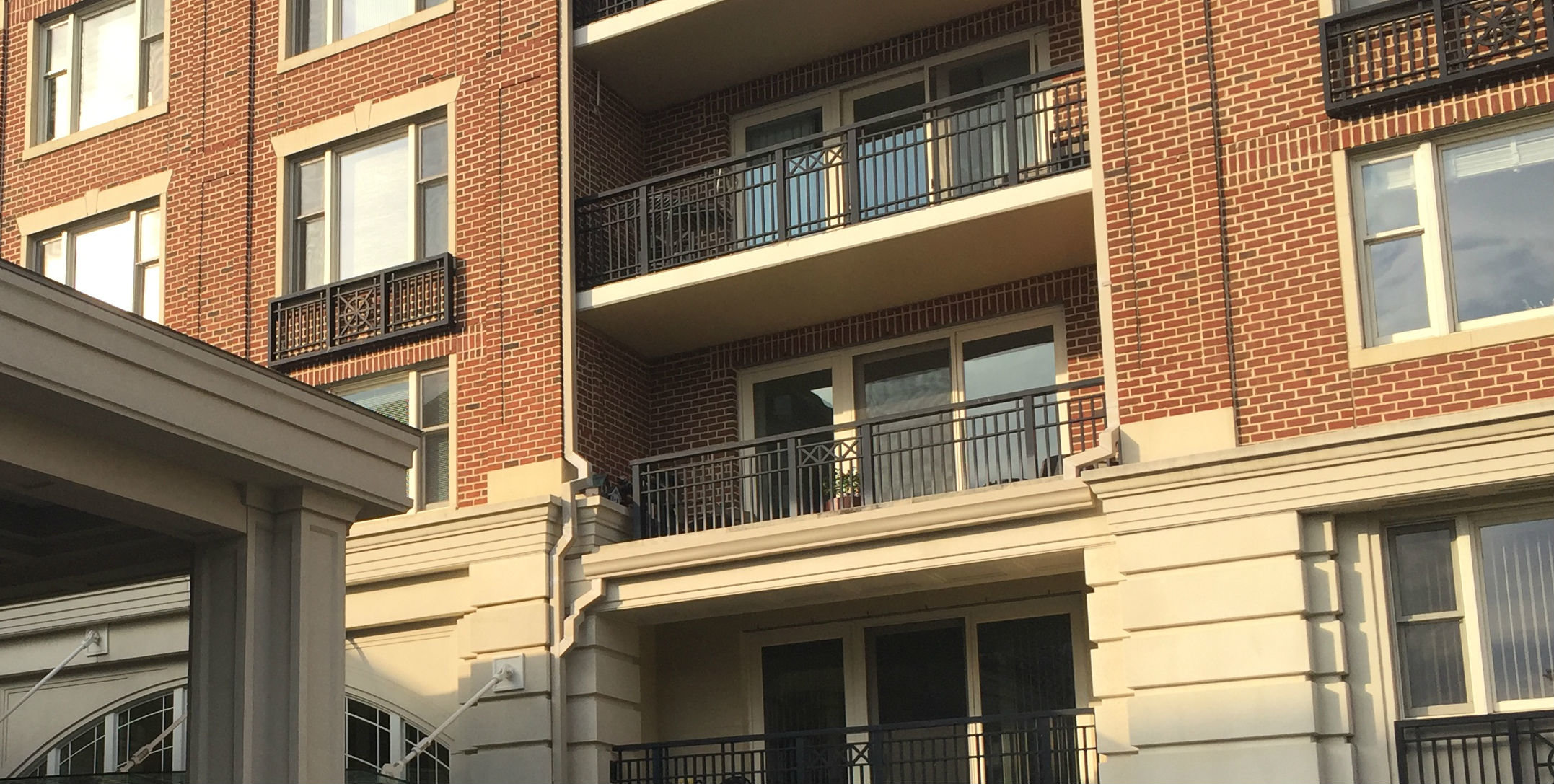Maryland Construction Law: Contractor and Subcontractor Payment Remedies in Maryland
Note About Author: Maryland Construction Law Attorney Nicholas D. Cowie has been practicing construction law for over 25 years. In 1998, Mr. Cowie established the Construction Law course at the University of Baltimore School of Law where he served as an adjunct professor of construction law. As a Maryland construction lawyer and construction litigation attorney with the law firm of Cowie & Mott P.A., Mr. Cowie is regularly involved in the litigation, arbitration, mediation, and settlement of high-profile construction law and construction business legal disputes. 
Maryland Construction Lawyers and Construction Law Attorneys
General contractors, builders, and subcontractors frequently become involved in payment disputes. In the construction industry contracting business, failure to make timely payment is often blamed on work delays, defective construction and lack of funds. This article provides a brief summary of some Maryland construction law payment remedies that Maryland construction lawyers and law firms utilized to obtain payment for building contractors and subcontractors. These laws are complex and their application will depend on the facts of each case. In most cases, strict time requirements imposed by law must be met to avoid waiving important legal remedies, typically running from the date that work or materials were last supplied. The statutory imposed time periods for giving notice of a claim or filing a claim can be very short, and therefore, time is always of the essence. This article should not be relied upon as legal advice but in each instance, a Maryland construction law attorney should be consulted immediately upon the failure to receive timely payment upon the completion of work to discuss legal options and strategies and to avoid waiving potential legal remedies. This article is in no way intended to be a comprehensive overview of the law but rather to provide a brief but helpful overview of some typical remedies that Maryland construction lawyers use to assist construction contractors and subcontractors in their efforts to resolve payment disputes.
Breach of Contract – Maryland Construction Law
When payment is not received, contractors and subcontractors can bring a legal action for breach of the construction contract or subcontract under which they have provided labor and materials. It is always preferable to have a written contract that defines payment terms. Additionally, building contractors and subcontractors can negotiate or add contract terms that will benefit them in the event of a payment dispute. For example, terms that: (1) restrict the ability to withhold payment; (2) require payment of attorney’s fees and litigation expenses in the event a legal action to collect payment becomes necessary; and (3) designate the specific court where the payment claims will be heard.
Maryland’s Mechanics’ Lien Law
A mechanics’ lien claim differs from a breach of contract claims because it allows a contractor or subcontractor to go directly after the property where the work was performed. A mechanics’ lien claim is a statutory remedy for contractors, subcontractors and material suppliers who have not been paid for construction work or building materials they have provided in connection with the construction of a building or other improvement to real property. A mechanics’ lien claim, if successful, results in the establishment of a lien against the real property (the land and buildings thereon) where the work or materials were provided. The lien can be used to force a sale of the real property as a source of monetary funds to satisfy the amount due for the construction work or the building materials provided. One of the obvious advantages of a mechanics’ lien claim is that one does not have to have a contract with the owner of the property in order to attempt to establish a lien on the real property. However, mechanics’ lien claims have strict timing requirements for notice and asserting claims that must be complied with in order to take advantage of this powerful payment remedy. For more details, see the article entitled “Maryland Mechanics’ Lien Law – A Strong Payment Remedy for Building Contractors and Material Suppliers.”
Maryland’s Prompt Payment Statutes
Maryland’s Prompt Payment Act is designed to provide a statutory remedy when money owed to a contractor or a subcontractor is withheld without a legitimate reason such as where an owner is simply trying to pressure a contractor in order to gain negotiating leverage, to try and renegotiate the contract price. As the name implies, the statute requires “prompt payment” of amounts owed. Specifically, if the construction contract does not specify a time for payment, an owner must pay a contractor undisputed sums owed thirty days after the grant of an occupancy permit or thirty days after the owner or its agent takes possession, whichever is earlier. If the contract specifies time for payment, the statute requires that the owner pay the contractor undisputed sums owed within seven days from the specified payment date. Likewise, contractors must pay their subcontractors undisputed amounts owed within seven days after receipt of payment for said work or materials. The statute allows a claimant to recover interest, reasonable costs incurred, and attorney’s fees in the case of bad faith withholding of moneys owed. The Court can also impose equitable relief in the form of an order directing a party to make payment of the funds with interest. For public procurement contracts, the Maryland legislature has created a separate prompt payment law, which establishes time periods in which undisputed amounts shall be paid to contractors and subcontractors and also contains a dispute resolution procedure in the event a subcontractor does not receive payment in a timely manner. The procedure, however, requires that written notice and explanation of the claim must be given to the procurement officer within required time periods.
Maryland’s Trust Fund Statute- Maryland Construction Law
The Maryland Trust Fund Statute provides a remedy for contractors or subcontractors who do not receive payment for work performed or materials furnished in the construction of a building. The Statute creates a trust relationship by requiring that any funds paid by an owner or a contractor under a construction contract for work already done or materials already furnished for or about a building be held in trust by the recipient of those funds as a trustee for the payment of the subcontractors lower down the chain who actually did the work or furnished the materials. Failure to hold those funds in trust for the benefit of payment to the subcontractors allows the subcontractor to bring a statutory legal claim directly against the person responsible for controlling the proceeds that are supposed to be held in trust. The Statute is designed to provide a remedy for subcontractors when funds have been earmarked for payment for work they have performed but a contractor in the chain above them withholds that payment. For example, when a contractor receives payment for work that a subcontractor had performed but diverts those funds to pay other bills on another job instead. Personal liability may be imposed on the person who knowingly retains or uses the money for purposes other than the payment of the subcontractor who actually performed the work or provided the materials.

Payment Bonds
In public contracts, mechanic’s liens are not available since they do not apply to public property owned by a governmental entity or public body. However, payment bonds can serve as an alternative source for seeking payment for contractors and subcontractors involved in public contracts so long notice is given and/or claims are made in a the time period require by the statute. Payment bonds are statutory remedies specifically for non-payment. The bonds are posted as security by a general contractor through a surety company in amounts as required by statute to serve as a guaranteed additional source of funds to pay contractors and subcontractors who supply labor, materials, or equipment in the event that the bonded general contractor fails to fulfill those payment obligations on its own. The Miller Act governs payment bonds on federal construction projects and Maryland’s Little Miller Act governs payment bonds on Maryland State construction projects. Like the Mechanic’s Liens law, there are very specific notice requirements that must be met to make a claim under a performance bond, and failure to provide proper notice, where applicable, will result in a denial of the claim. An action on the bond must also be filed within a specified time period. Although payment bonds are usually required only on public construction projects, some owners do require their general contractors to purchase payment bonds on private construction projects to create a source of payment for subcontractors and suppliers should the general contractor fail to pay them.
CONSTRUCTION LAW ATTORNEYS
1321 Generals Highway, Suite 302, Crownsville, MD 21032 • Telephone: 410-327-3800 • Facsimile: 410-327-3801








